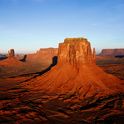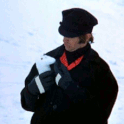I see chefs on tv using butcher block counters and very large cutting boards to chop all kinds of things (think garlic, sun-dried tomatoes and raw proteins). For me, this would warrant a good scrub in the sink. How does one clean these large cutting boards especially if it's your counter? Do you wash your wooden cutting boards after each use?
7 Comments
A few side bits:
1) if you decide to take the plunge and take proper care of, and care with, a wooden board, it's worth learning to use a cabinet scraper, which is the best way to get a smooth surface on a piece of wood. It seems easy, but can take a bit of practice to get the hang of, so practice on something else before you decide to clean up all those little cut marks on your board.
2) The other reason to keep your board dry is that wood, being a natural and once living thing, responds very quickly to water and humidity. if you take a thin, cheap board you can see this quite quickly by soaking ONE side of the board and leaving the other dry and then leaving the board to air dry. Alternatively, put a wet board down flat on a counter and leave to dry. As the wet side or the exposed side dries, the fibres shrink and the board will start to 'cup'. You need to keep the exposed side of a permanently mounted board from really getting soaked and left to air dry, and you need to make sure with a small board that you wash in the sink that you treat both sides equally when you wash and leave to dry. Otherwise, you will get cupping and splitting, especially where pieces have been laminated together.
3) I remember an article, probably in the NYT, about some research at UC Davis on wooden boards vs plastic. Their research indicated that bad bacteria were much more likely to develop in the cuts on plastic boards than the cuts on wooden boards, probably because of the tendency for wood to 're-expand' with humidity. Furniture restorers can often fix a simple, small dent in a piece of wood with a steam iron. Same thing happens as you wash the wooden board and the tiny little groves tend to shrink and disappear.




